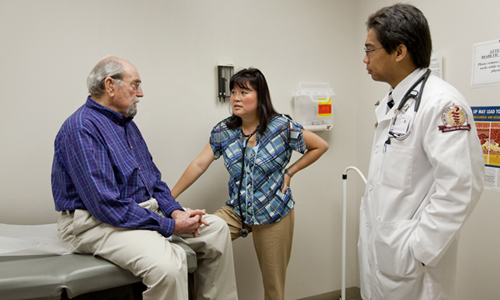
| INTRODUCTION |
|
YOUR COMMUNITY MEDICAL SCHOOL When most alumni hear “Florida State University,” they automatically think “Tallahassee.” Fact is, Florida State extends well beyond the capital. The College of Medicine, in fact, has six regional campuses across the state. One is in Tallahassee; the others are in Pensacola, Daytona Beach, Orlando, Fort Pierce and Sarasota. What's more, there are rural training sites in Marianna and Immokalee. Together, they form the foundation of a remarkable college that’s helping to redefine medical schools in this country.Here’s how the College of Medicine works: During their first two years, the medical students get classroom training on the main campus in Tallahassee. For their third and fourth years, though, they fan out to the regional campuses. Unlike the main campus, these regional campuses are not filled with classrooms and research labs. Instead, their “classrooms” are community hospitals and other medical facilities. Their teachers are community physicians. Their learning is hands-on. In fact, you might see our students (look at the patch on their white coat) when you visit your physician or one of the hospitals in your community. We’re not talking about a handful of physicians. Statewide, we have a network of more than 1,500 who mentor our students through required rotations in family medicine, internal medicine, pediatrics, surgery, obstetrics/gynecology, geriatrics, psychiatry and emergency medicine, plus electives. After those two years, they’re not “our” students anymore. They’re your students, part of your community, dispensing medical care to you and your neighbors. So the next time you want to boast about your alma mater, ask your friends whether they realize some of Florida’s best doctors are being trained right in your community. The Florida State University College of Medicine is closer than you think.
In the photo: Fourth-year student J.P. Soberano learned from Dr. Bach-Uyen Le Thi in Milton during the spring semester. (Photo by Colin Hackley) |
 |
 |
 |
| E-mail Alumni Affairs Phone: 850-645-9428 | ||
|
|
|
Florida State University
|
College of Medicine
|
Copyright 2013
|

